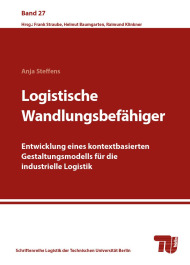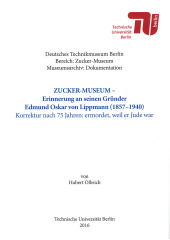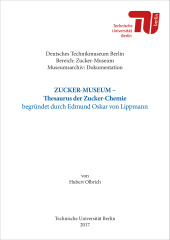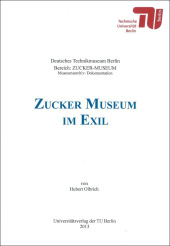Logistische Wandlungsbefähiger
Entwicklung eines kontextbasierten Gestaltungsmodells für die industrielle Logistik

Format: 14,8 x 21,0 cm
Publishing year: 2014
The market environment of manufacturing companies is changing constantly and with increasing speed. Shorter product life cycles, continuing globalization and technological innovation are some drivers of these changes. As a consequence of this development a more complex and dynamic market environment with al low predictability results. Derived from the concept of flexibility, the research areas of agility and transformability have been established to cope with this challenge. The later concept which is focused in this work aims to prepare systems with defined enablers (transformability enablers) for uncertain environments and is mainly focused on factory planning. A current need for research exists, additionally to potentials in practice, in the transfer of the concept of transformability to the integrative design of the customer order processes. This is the starting point of this thesis which advances the focus to the processes of industrial logistics.
The aim of the thesis is to develop a context-based and application-oriented design model for the transformability of industrial logistics. Therefore the first step is the illustration of the current state of research of the three concepts flexibility, agility and transformability based on a structured literature analysis. Relevant research and the implications for the derivation of the design model are systematized and discussed. In a second step, the theoretical implications are considered to develop the design model for the transformability of industrial logistics. This model is based on three central points of transformability – the drivers, objects and enablers, which are linked to the respective phases Monitoring, Planning and Fulfillment as well as Design. Thereby the implications of the five transformability enablers compatibility, modularity, mobility, universality and scalability for the process design of industrial logistics are focused. In a third step, the individual phases of the design model are described in detail, both theoretically and empirically. The research process leads to a structured overview of current challenges and a library of 17 categories and assigned methods to apply transformability in industrial logistics.
The design model, which illustrates the relevant design phases, their relationship as well as its application-oriented configuration with the identified approaches and methods, represents the result of this thesis.



